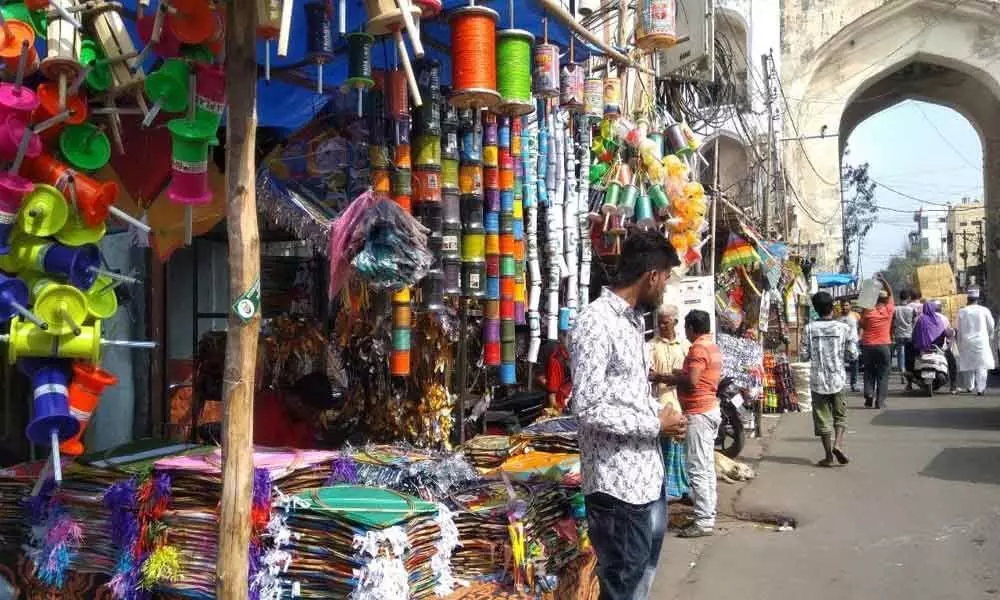Desi manja sales cut short by banned Chinese manja

The handmade desi manja is still prepared by families in the Old City. Times have changed but the traditional way of making the desi manja hasn’t. It is an old tradition of making manja sharp by boiled rice and other materials.
Charminar: The handmade desi manja is still prepared by families in the Old City. Times have changed but the traditional way of making the desi manja hasn't. It is an old tradition of making manja sharp by boiled rice and other materials. Meanwhile, the onslaught of Chinese manja (Tangus or Wire) on the Indian market, has made a dent into this age-old tradition by affecting the sale of desi manja.
A month before Sankrathi festival, several members of family including workers gear up for making desi manja. "Earlier, we used to start manufacturing manja six months before the festival, but with Chinese manja taking up the major share of the market, the desi manja is surviving on the edge with diminishing orders.
"In the past people would come a few months in advance and place orders for manja. We used to manufacture manja over a lakh meter per day, but now it has reduced to half," said Shaik Tayyab Amoodi.
24-year-old Shaik Tayyab told The Hans India that 12 yrs ago he entered into this family business which was started by his father in 1972. Around eight members of the family are involved in various aspects of des manja making.
Two members tie the thread at two poles placed apart at a designated distance. Two more members apply the paste and two more roll the thread. "Though it looks easy, but years of experience brings out the best manja with correct mixture of paste and exact pressure and time which are very crucial in manufacturing desi manja," he added.
The material used for making the desi manja is boiled rice, soap, egg, glass dust powder and different colours etc. It takes around 30-45 minutes to prepare the paste. There are two types of manja (Dheel and Kheench) for making dheel manja the width size of thread would be larger, and more amount of paste is applied. While for making kheench manja normal size thread and applying of paste is normal, Amoodi explained.
Desi manja and Chinese manja are of same price, but the Chinese manja is more sharp and tough giving advantage to the kite flyer during kite fighting. But it also poses risk as it can damage the fingers and cut others skin. In recent years, many incidents have occurred wherein individuals as well as birds and animals had to bear the injuries. The desi manja costs around Rs 220 for 900 meters and Rs 720 for 1800 meters, he added.
Despite ban, Chinese manja still available
Charminar: Even after the government had imposed ban on Chinese Manja in 2016, the synthetic thread also called as 'Tangus' or 'wire' is available in black market, even after several cases have been booked against the sellers.
Nationwide ban came into effect following reports of bird fatalities, besides injuries to humans across during the festivities. According to the vendors near Charminar, "Due to customer preferences this manja available in the black market," said, a vendor.
"This year there is not much stock and many of the vendors are selling the old stock," said B Das, owner of a 75-year old shop and third generation businessman near Charminar.
Chinese cloth kite in high demand Imported Chinese cloth kites are in high demand for the kite festival held during Sankranthi. Cloth kites costs starting from Rs 20 to Rs 2000 and may more according to the size.














